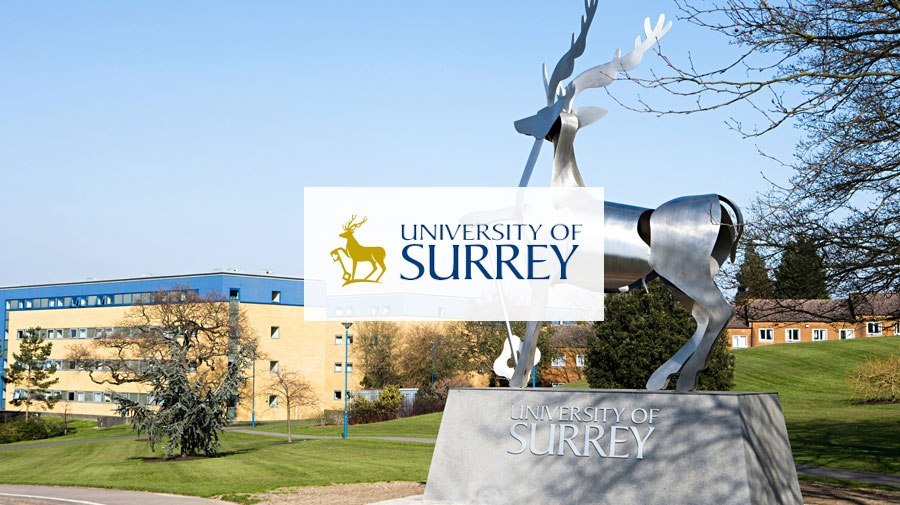Biomedical Engineering PhD
Why choose this course
The Centre for Biomedical Engineering at the University of Surrey provides world-class research into biomechanics, biomedical engineering and tissue engineering. We have links with globally leading companies such as Blatchfords, the Transport Research Laboratory, Smith and Nephew and with hospitals across the south of England, as well as extensive international research collaboration. Many of the UK’s senior biomedical engineers were trained by us.
The quality of our undergraduate and postgraduate students’ research has been recognised by national professional bodies, with prestigious awards such as the IET Dennis Hill Award for best final project in 2015, the IMechE JRI award for best taught masters project poster presentation, and the IET Leslie H Paddle Scholarship for doctoral research.
Our graduates have since gone on to clinical engineering positions in the NHS, design consultancies, medicine, prosthesis manufacturers, car manufacturers as safety specialists, and others. A PhD course in Biomedical Engineering will allow you to test the cutting-edge of science and make new discoveries. The Centre celebrated its 50th group of students in 2015, and we hope you’ll join us as we enter our second half-century. In the most recent Research Excellence Framework (REF) 2014, 80 per cent of our ‘general engineering’ research outputs were rated as ‘world-leading’ or ‘internationally excellent’.
What you will study
Our PhD in Biomedical Engineering will give you the knowledge, skills and expertise needed for a career in engineering, research or academia. You’ll be intellectually challenged, develop research and management skills, and become an expert in your chosen field of study.
It normally takes around three years to complete a full-time PhD. You’ll be assigned a minimum of two supervisors, who will guide you through your PhD. You’ll learn how to conduct literature reviews, develop your ideas and verify them with experiments, and collaborate and perform interdisciplinary research. Over time, we’ll develop your skills and transform you into an independent researcher.
Research support
The professional development of postgraduate researchers is supported by the Doctoral College, which provides training in essential skills through its Researcher Development Programme of workshops, mentoring and coaching. A dedicated postgraduate Careers and Employability team will help you prepare for a successful career after the completion of your PhD.
Research themes
- Biomechanics
- Biomedical engineering
- Tissue engineering
Intakes
- Jan
- April
- July
Application Processing Time in Days: 20
Minimum English Language Requirements
| English Level Description | IELTS (1.0 -9.0) | TOEFL IBT (0-120) | TOEFL CBT (0-300) | PTE (10-90) | |
|---|---|---|---|---|---|
| Expert | 9 | 120 | 297-300 | 86-90 | |
| Very Good | 8.5 | 115-119 | 280-293 | 83-86 | |
| Very Good | 8 | 110-114 | 270-280 | 79-83 | |
| Good | 7.5 | 102-109 | 253-267 | 73-79 | |
| Good | 7 | 94-101 | 240-253 | 65-73 | |
| Competent | 6.5 | 79-93 | 213-233 | 58-65 | |
| Competent | 6 | 60-78 | 170-210 | 50-58 | |
| Modest | 5.5 | 46-59 | 133-210 | 43-50 | |
| Modest | 5 | 35-45 | 107-133 | 36-43 | |
| Limited | 4 | 32-34 | 97-103 | 30-36 | |
| Extremely Limited | < 4 | < 31 | < 93 | < 30 |
Admission Requirement / Eligibility Criteria
Applicants are expected to hold a first or upper-second class degree in a relevant discipline (or equivalent overseas qualification), or a lower second plus a good Masters degree (distinction normally required).
- Course Type: Full Time
- Course Level: Doctoral Degree/PhD
- Duration: 04 Year
-
Total Tuition Fee:
85600 GBP
Annual Cost of Living: 9207 GBP
Application Fee: N/A
Similar Programs
- Micro- and NanoMaterials and Technologies EngD at University of Surrey
- Engineering Materials PhD at University of Surrey
- Engineering Materials PhD at University of Surrey
- Engineering Materials PhD at University of Surrey
- Engineering Materials PhD at University of Surrey
- Biomedical Engineering PhD at University of Surrey

